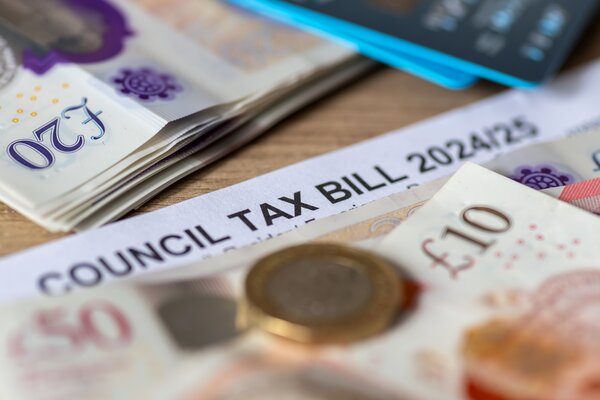Labour is actively considering whether to introduce a wealth tax as part of its fiscal strategy, sparking fierce debate across the political spectrum. Early suggestions involve a 2% levy on assets above £10 million, with some estimates suggesting it could raise £24 billion annually. Supporters argue such a move would ensure fairness and help fund public services. Critics, however, warn it risks economic stagnation, capital flight, and a troubling shift in Britain’s attitude toward private property.
Chancellor Rachel Reeves has not confirmed any final policy, but leaks from the Treasury and growing interest from Left-leaning think tanks have kept the issue at the forefront of public debate. The timing is crucial: with the UK’s tax burden already around 39% of GDP close to post-war and early 1980s levels any new tax is viewed with both hope and alarm.
1. The Current UK Tax Landscape
It is important to note that the UK’s tax take is already at historically high levels. Current receipts amount to roughly 39% of GDP, comparable to figures seen during WWII and the early 1980s. This corrects a common misconception that Reeves would be pushing the country into unprecedented territory.
Nonetheless, Britain’s tax system has traditionally hovered closer to one-third of GDP. Sustained rises beyond this are rare and politically fraught, explaining why discussions of new taxes particularly on wealth are drawing so much scrutiny.
2. What Labour Is Considering
According to reports, the Treasury is weighing a wealth tax of 2% on assets above £10m. Advocates, including the Tax Justice Network, claim this could yield £24bn annually. Labour MPs such as Rachael Maskell have cited this figure in recent debates.
However, this remains under consideration rather than settled policy. Reeves has consistently signalled caution on sweeping tax reforms, wary of alienating business leaders and investors. Whether this idea makes it into a future manifesto remains an open question.
3. International Lessons
Britain is not the first country to flirt with a wealth tax. France, Sweden, and Germany all introduced such measures in the past but later scrapped them. Common reasons included:
- Capital flight: wealthy individuals relocating assets or moving abroad.
- Administrative complexity: difficulties in accurately valuing assets each year.
- Limited revenue: taxes often raised less than forecast while dampening investment.
These experiences fuel warnings that a UK wealth tax could be self-defeating, raising modest sums while discouraging growth.

4. Public Opinion and Polling
Polls suggest strong public support for taxing the very wealthy. Surveys have indicated that a significant majority sometimes quoted as around three-quarters of respondents back the principle of a wealth tax. However, the precise figure remains contested, and independent verification is patchy.
Support is often strongest when respondents believe the tax won’t affect them directly. Critics argue this creates a “Robin Hood illusion” popular in theory but prone to resistance if thresholds shift downward over time.
5. Economic and Behavioural Concerns
Opponents warn of unintended consequences. Higher taxes could:
- Discourage entrepreneurs from building and scaling businesses.
- Reduce foreign investment in the UK.
- Encourage tax avoidance strategies that erode the expected revenue.
Some commentators also point to anecdotal behaviour such as workers refusing overtime or professionals considering early retirement but hard data supporting these claims is limited. The broader risk is that uncertainty about future tax policy undermines business confidence.
6. The Moral and Social Debate
The wealth tax debate is not just about economics it is also about values. Critics argue that such a tax sends a message that ownership itself is subject to state approval, shifting the perception of wealth from private to public. This, they warn, risks encouraging resentment of success and a “rationing mentality” where wealth is divided rather than created.
Supporters, however, argue the opposite: that Britain cannot afford growing inequality, and that those with extraordinary wealth should contribute more to sustain services relied upon by all. In their view, a wealth tax is not expropriation but fairness.

7. A Society at a Crossroads
The decision facing Labour encapsulates a wider choice: should Britain pursue policies that protect wealth creation and private ownership above all else, or recalibrate towards redistribution in the name of social justice?
With the country under fiscal strain, public services stretched, and inequality widening, the wealth tax proposal has become a lightning rod for this deeper debate. Its outcome may shape not only the economy but also Britain’s cultural and political identity for decades to come.
Final Summary
Labour’s consideration of a wealth tax is one of the most consequential fiscal debates of the decade. On paper, a 2% levy on assets above £10m could raise £24bn, but critics doubt its sustainability and warn of broader damage to investment and growth. International precedents suggest caution, yet public opinion appears strongly in favour.
Whether Reeves embraces or rejects the idea will reveal much about Labour’s economic philosophy. Is the priority fairness through redistribution, or stability through growth incentives? As the discussion unfolds, Britain stands at a crossroads between two competing visions of its economic future.











